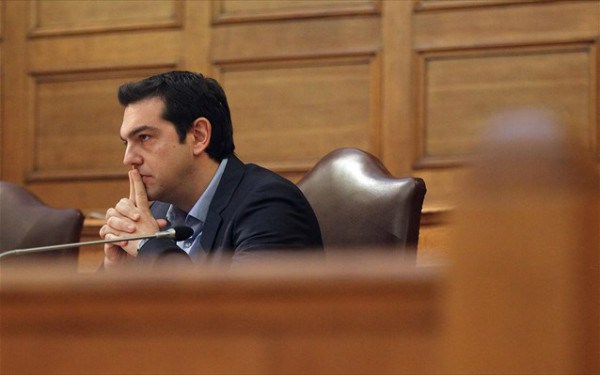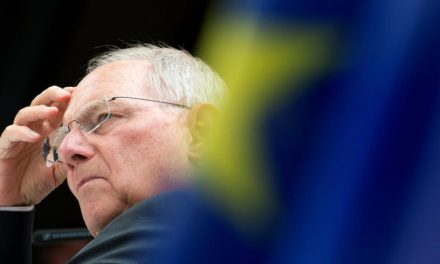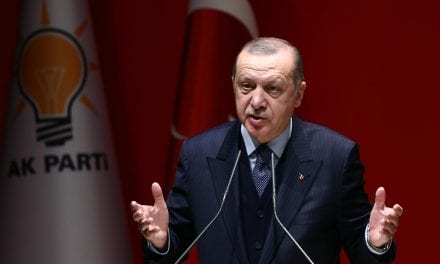The rift between Greece and the rest of the eurozone is deep and won’t be easily bridged
As talks over Greece’s bailout move closer to the brink, the 19 countries of the eurozone have split into two distinct camps: Greece and the other 18.
It didn’t start off quite like this. The new government of Alexis Tsipras was greeted warily by many when it took office in January, given the left-wing leader’s bold campaign promises of writing off the country’s debt. But there were some sympathizers on the left among the leaders of France and Italy, and many expected Mr. Tsipras would change tack once he took office.
That shift hasn’t been much in evidence and even the sympathy there was has evaporated somewhat. Finance Minister Yanis Varoufakismay have lost an ally in Italy when he declared that it too risks bankruptcy. Politicians across Europe of all political stripes are now saying both publicly and privately that Greece must follow the rules if it wants more aid.
Before a meeting of the Eurogroup forum of eurozone finance ministers last month, Austrian Finance Minister Hans Jörg Schellingdeclared, “In the Eurogroup meetings on Greece so far, there was a very determined finance ministers’ front, 18 to 1, and we stay true to that.”
Peter Ludlow, a Brussels-based historian and commentator on the European Union, says Greece’s isolation inside the bloc may be unprecedented.
This, he and others say, has several explanations.
Some eurozone governments—Ireland, Portugal, Spain and the Baltic states—see themselves as having swallowed tough, politically costly but ultimately successful medicine and see no reason why Greece should be spared such rigor. Some, like Slovakia and the Baltic states, are poorer than Greece and pay their workers a lower minimum wage.
Another element is that further debt relief for Greece in whatever form means losses for governments—Athens owes other eurozone governments €195 billion ($212 billion)—and therefore for eurozone taxpayers. Germany is owed the largest sum—more than €60 billion—followed by France and Italy. But, as a percentage of their gross domestic product, other countries have more on the line than Germany. According to a Bloomberg Brief analysis, Greece’s debts to Slovenia exceed 3% of Slovenian GDP, compared with 2.4% for Germany.
Another issue is political. Making big concessions to a radical political party in Greece that is seeking to tear up the eurozone rule book would, leaders fear, encourage insurgents in their own countries and jeopardize their careers.
Then there is the personal dimension: Poor personal chemistrybetween the new Greek government’s inexperienced and sometimes charismatic politicians and their battle-scarred opposite numbers in the rest of the eurozone.
For most of the latter, the rules matter. But it is more than that. Germany, many other governments and senior policy makers in Brussels believe their austerity strategy has been a success—and was finally working in Greece last year when its economy began growing after six years of contraction. Now, they believe that success has been jeopardized by the recklessness of Mr. Tsipras and his colleagues.
They also believe that recklessness has been encouraged by misguided political and economic philosophies and bad advice from abroad.
It isn’t so much that many in Mr. Tsipras’s Syriza party are Marxists—the eurozone can handle followers of the bearded 19th-century German philosopher. It is more that they are seen to be excessively influenced by a 20th-century British economist—John Maynard Keynes—and his living Anglo-Saxon disciples.
At finance ministers’ meetings in Brussels, Mr. Varoufakis has been accompanied by American economists James Galbraith and Jeffrey Sachs. From across the Atlantic, the new government gets strong rhetorical backing from Paul Krugman,Joseph Stiglitz and others.
Thus, the philosophical home of Mr. Varoufakis, who taught at British, Australian and American universities, is viewed as being—as Mr. Ludlow says—in the “Anglosphere.” Mr. Varoufakis’s first visit as finance minister was, he points out, to London.
“Varoufakis and his colleagues and subordinates in the new government turned instinctively therefore to the U.K. and the U.S. even before they called on the European Left. So it was that Varoufakis made London his first port of call when he set about wooing foreign support in the first week in February,” Mr. Ludlow said in a just-published evaluation of last month’s summit.
For Mr. Varoufakis, his government and most Keynesian economists, the official eurozone position that the austerity medicine was working would be laughable if it hadn’t had such a devastating effect on the Greek economy. From their standpoint, Greece has lost a quarter of its GDP and the eurozone is calling for more leeches to further bleed the patient.
The standoff between the new Greek government and the rest of the eurozone is therefore deep and complicated, the result of a clash of personal styles, of philosophy and of conflicting national interests. All 19 eurozone members still say they want Greece to stay in the club. But their differences won’t be easily bridged. They may not even be bridgeable.



















